
Metaverse, NFTs, Augmented Reality, Mixed Reality, Digital Twins, Virtual Reality… if you already have your head spinning trying to figure out what do they really mean in your specific business environment and how are these going to impact your future business models, you are not alone. The last few years have seen a dizzying development in software, blockchain, IoT, hardware and use cases around mixed reality, and it can get overwhelming for an enterprise to understand what are the right tools and technologies and how to go about implementing the same. At Innovate Labs, we got your back. Connect with us to know how immersive and mixed reality can solve some of your complex business challenges and the implementation plan. Our experts will be happy to help you demystify the complexity around immersive technologies and demonstrate some use cases that might help you understand the value proposition
The first head mounted display was produce
The US military produce the first flight-simulator
The intractive VR ecprerince videoplace is built (it fills an entire room)
VPL research inc. is the first company to sell VR googles and glovs
The term virtual reality becomes popular 3D worlds can now be built in a PC
HTC, Google, Apple, Amazon, Microsoft, Sony, Samsung all develop headsets
The Oculus Rift headset prototype in unvield. VR is back!
The first commercial AR application, A BMW advert was produce
Nintendo launch the Virtual boy consule. it bombs
The first VR arcade machine is unveiled n london
Google introduces ARCore SDK for Android devices.
Microsoft introduced Hololens 2, the most advance headset for AR/MR
Apple expected to launch AR headsets, followed by smart glasses.
Riding on 5G networks,AR Cloud based expereinces will gain prominence
AR market expected to hit approximately 76B$ revenues
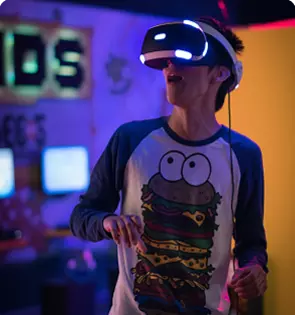
Virtual reality immerses the user in a completely digital environment & is disconnected from real world surroundings allowing users to experience simulated spaces, which otherwise are difficult to recreate. E.g. Hazardous situation training, Virtual Tours, walkthroughs etc. VR also allows users to experience very large equipment, spaces in 1:1 scale & have found wide spread use in training, visualization, education & gaming industry. A VR headset is mandatory to experience VR content.
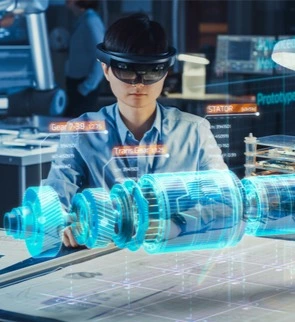
Augmented reality, enhances or augments the real world around the user with virtual objects, allowing unique insights for the user. The information & understanding of any environment is enhanced multifold by superimposing digital content on real life objects. AR use cases include work instructions, remote assistance, training, enhanced user experience & engagements etc. AR content can be consumed using a smart phone or advanced HMDs such as HoloLens for a hands-free operation
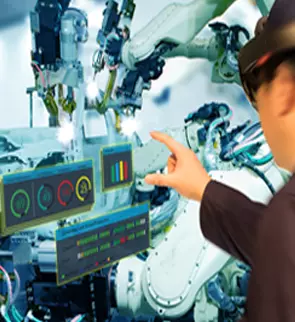
Mixed reality is an amalgamation of both virtual & augmented reality offering advantages of both worlds. In MR experience, an enhanced semi-immersive & interactive environment can be presented to the user. The user can manipulate both digital & physical objects & can reply scenarios where both digital & physical information is actionable & interactive with the user, environment & each other. Holographic devices such as HoloLens are required to experience mixed reality applications
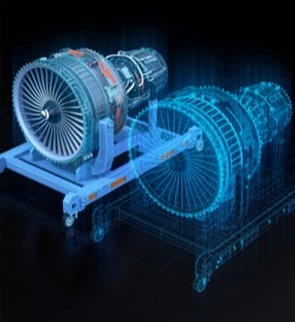
Digital Twin is a virtual representation that serves as the real-time digital counterpart of a physical object. The sensors outfitted on a physical object produce data about its performance. This data is then relayed & applied to the digital copy. Using AI algorithms on this data, the virtual model can be used to run simulations, study performance issues & possible improvements. Digital Twins can also serve as a replacement of actual equipment to train people in actual scenarios
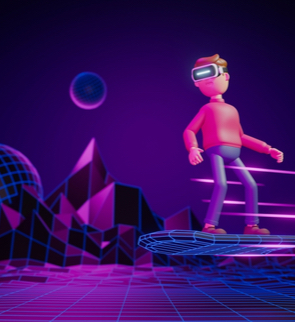
Metaverse represents a concept of a persistent, online, 3D universe that combines multiple different virtual spaces. Metaverse is still an evolving concept. However, multiple platforms are building elements that will together constitute a full rendition of this concept. Metaverse will allow users to exist in a parallel virtual reality where they can meet, work socialize via their digital avatars. Many organizations are already building virtual stores on Metaverse & also tout this as the future iteration of internet with experience
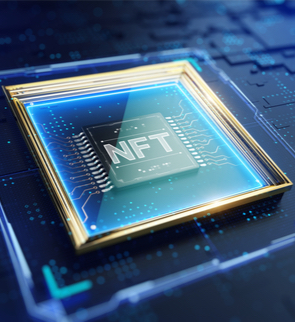
Non-Fungible-Token, which in literally means “unique” & cannot be replaced with anything else. NFT can be anything digital e.g drawing, music, images. The ownership of an NFT is stored on blockchain and can be transferred by the owner, allowing NFTs to be sold & traded. Since NFTs cannot be copied, ownership of the same cannot be disputed or falsified. In today’s world where digital content/art has become the primary consumption, NFTs open a new & exciting world of digital commodities.


 20% Aerospace & Automotive
20% Aerospace & Automotive 17%Healthcare
17%Healthcare 13% Education
13% Education 10% Retail
10% Retail 10% Manufacturing & Engineering
10% Manufacturing & Engineering 7% Architecture & construction
7% Architecture & construction 11%Entertainment
11%Entertainment 12% Others
12% Others